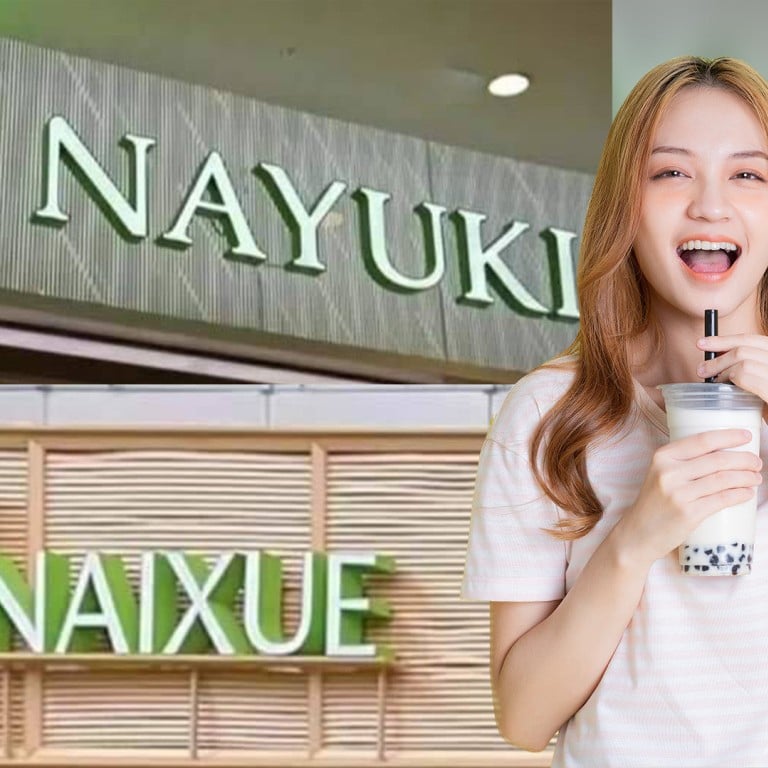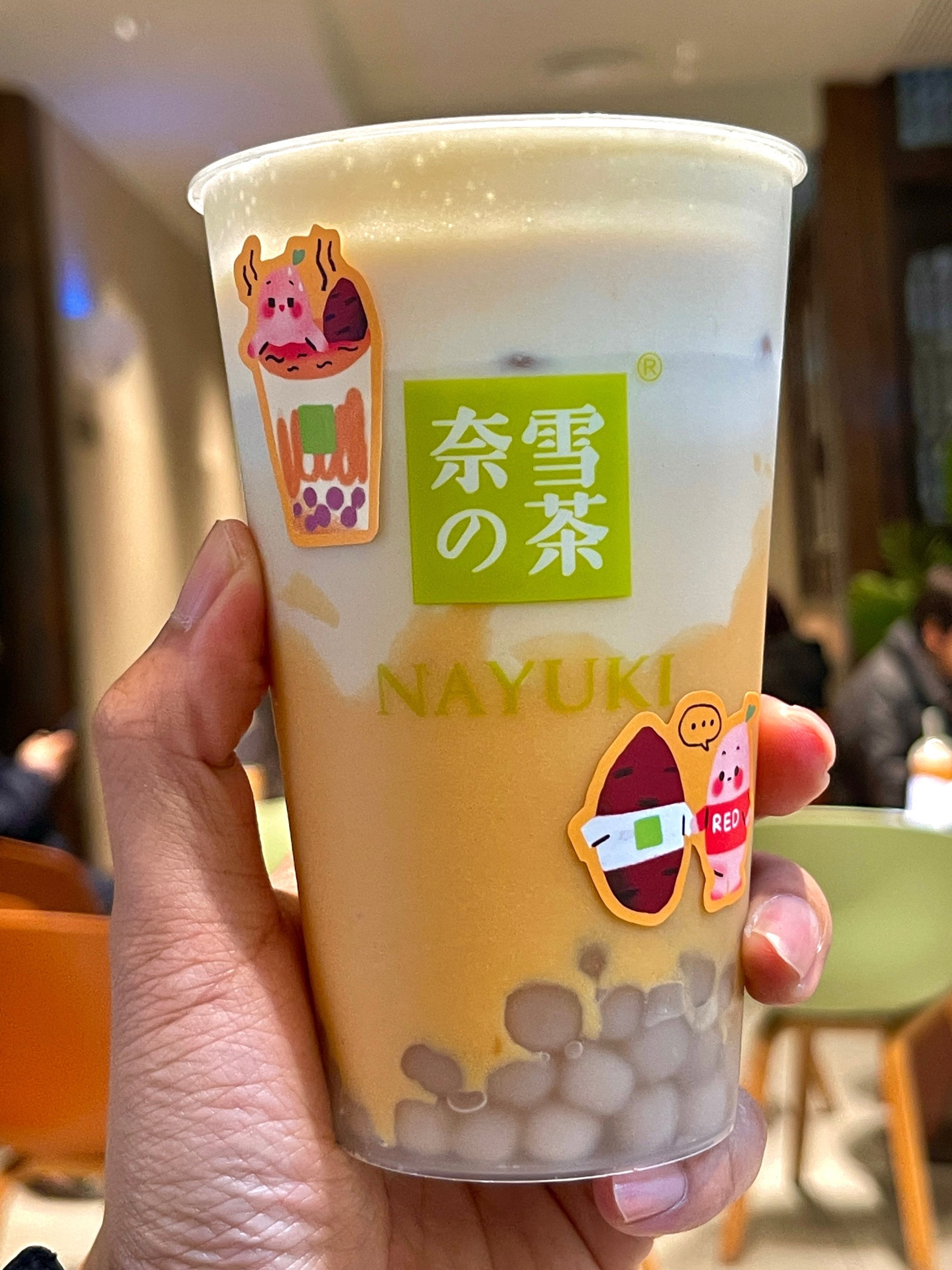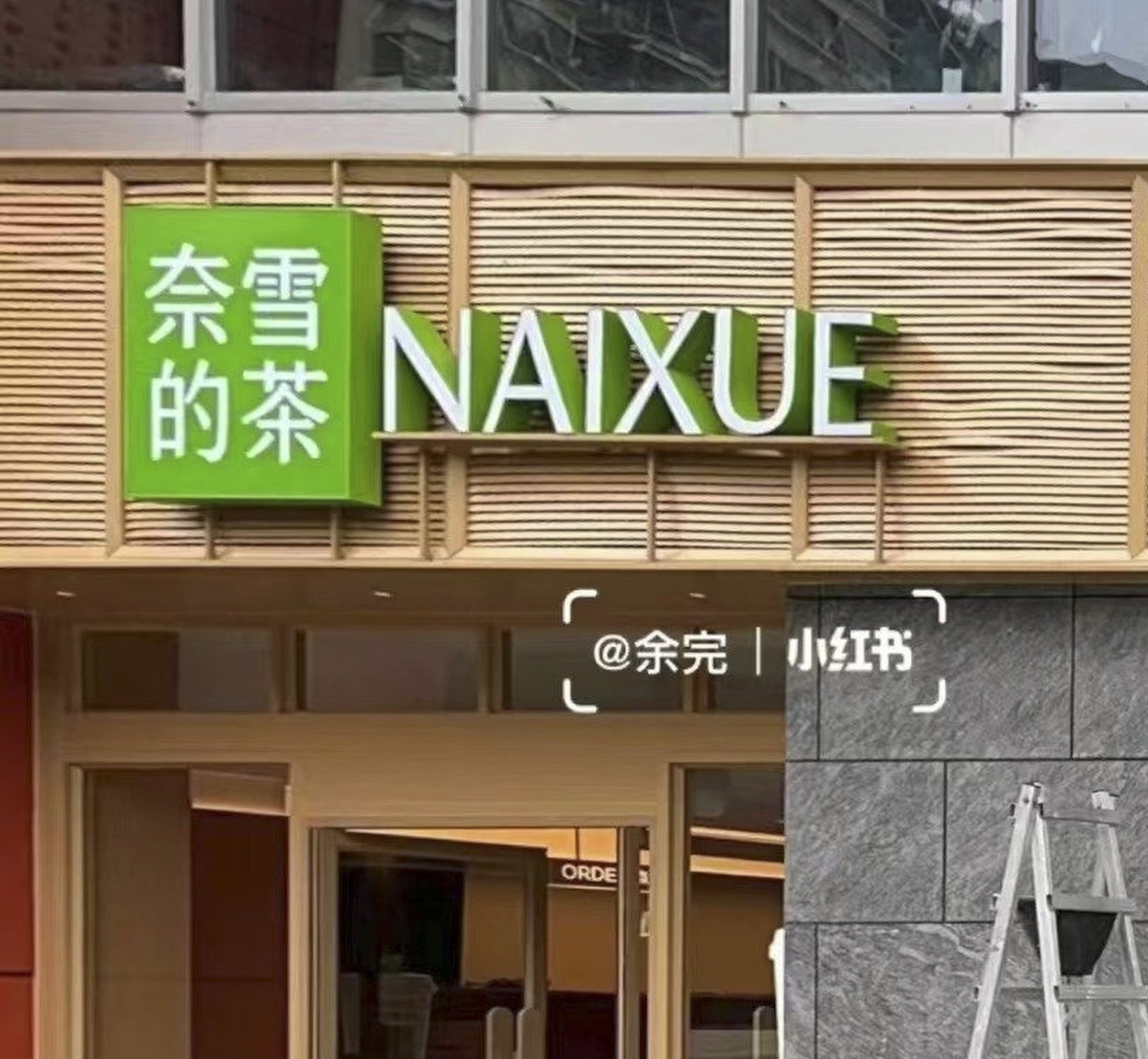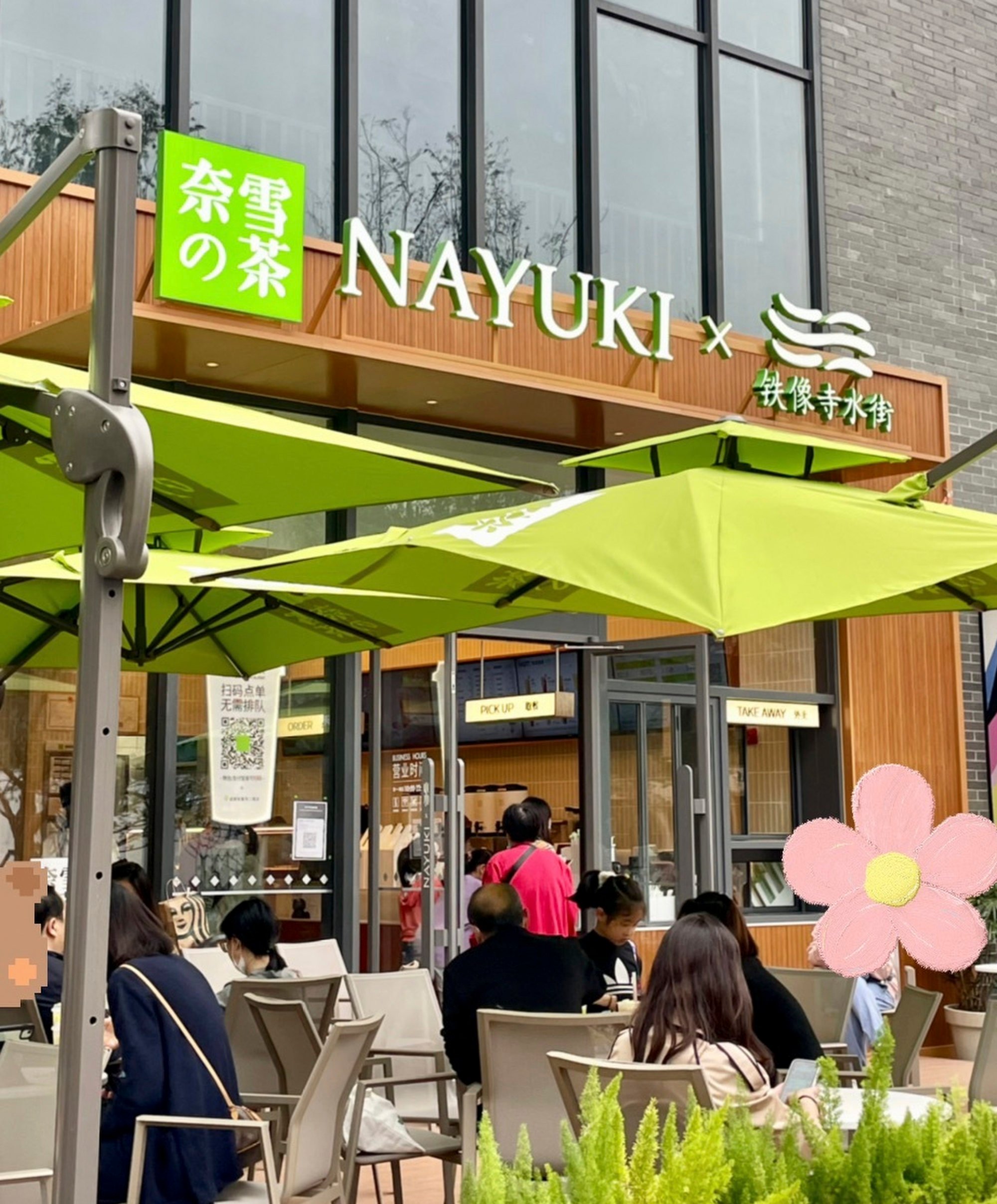
‘De-Japanify’: China milk tea brand Nayuki loses Japanese-sounding name amid rising nationalism and anti-Japan sentiment
- Rising anti-Japan sentiment in China sees many domestic brands change their name to avoid any potential backlash
- Tea drink maker Nayuki is the latest company to rebrand to avoid being caught in the crosshairs of rising nationalism
A well-known Chinese milk tea brand has removed once popular Japanese elements from its name after several other domestic brands took similar action amid rising nationalism on the mainland in recent years.
Nayuki, a homegrown Chinese brand that sells tea-based drinks, is replacing a Japanese possessive particle in its Chinese name with a Chinese character meaning the same, and changing its English name to pinyin, Naixue, to exactly reflect its Chinese pronunciation, Red Star News reported last weekend.
The company said the change was part of a “strategic branding upgrade” ahead of the 7th anniversary of its founding, at a time when consumers are increasingly choosing to buy domestic products.

Founded in 2014 and listed on the Hong Kong stock market last year, Naixue is one of the most popular milk tea brands in mainland China.
The name was based on company founder Peng Xin’s online nickname. Meaning Naixue’s Tea, its original Chinese name included a Japanese possessive particle with the original English name - Nayuki - sounding Japanese as well.
However, the company has started to “de-Japanify” itself over the past year as it tries to position itself as a “China chic” brand and to emphasise its Chinese identity, Peng said in recent public comments.

Photos shared on social media, and a search of its online ordering systems in different cities show that some of its stores have already started using the new brand name.
It was once a common marketing strategy for Chinese companies to mimic Japanese styles, which used to be popular with younger consumers, but this has become a liability as anti-Japan sentiment has grown in China in recent years.
Miniso, a Guangzhou-based budget lifestyle brand that closely resembles Japanese-owned retailer Muji, apologised in August after being attacked online by nationalists for trying to promote itself as an overseas Japanese designer brand.

The company vowed that all its promotional materials and shop decorations would be free from Japanese elements by March 2023.
In 2020, trendy Chinese drink maker Genki Forest, which originally had a similar Japanese-ish look in its branding, replaced a Japanese character meaning air on its packaging with the corresponding Chinese character qi.

